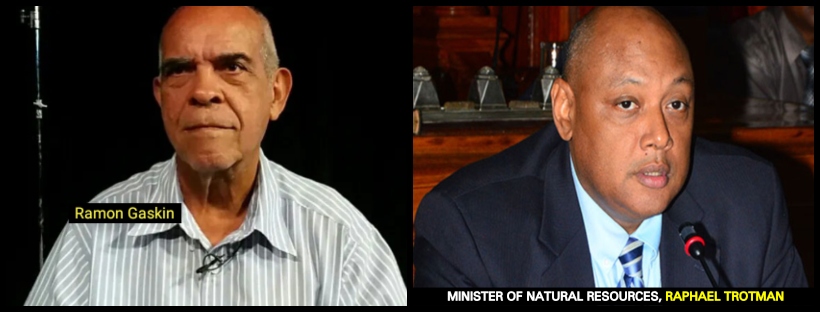Transparency Advocate, Ramon Gaskin has petitioned the Court of Appeal to reverse and or set aside the ruling of Chief Justice (CJ) Roxane George that the Petroleum Production License dated June 15, 2017 and issued to Esso Exploration and Production Guyana Limited, a subsidiary of Exxon Mobil, Hess Guyana Limited (Hess) and CNOOC Nexen Petroleum Guyana Ltd (NEXEN), were properly granted.
Gaskin’s lawyers, Trinidad-based Senior Counsel, Seenath Jairam and environmental lawyer Melinda Janki, had asked the Chief Justice to issue an order quashing the decision of Minister of Natural Resources, Raphael Trotman to issue the license to Esso which is in operation for all three of the companies. Gaskin contended that the companies each had to be issued with separate environmental licenses in order for the Stabroek Block to be developed.
The transparency advocate had also sought another order prohibiting the subject minister from taking any steps in furtherance of the Petroleum Exploration and Production Act until Hess and CNOOC/NEXEN are given individual environmental licenses.
Justice George, however, in her ruling essentially agreed with submissions advanced by lawyers from the Attorney General chambers who appeared for Minister Trotman as well as those proffered by Senior Counsel Edward Lukhoo, who in association with Maria Luckhoo appeared for Esso and Senior Counsel Andrew Pollard and Nigel Hughes, who appeared for Hess.
The Chief Justice found that the issuance of the license to Esso Exploration satisfied the requirements of the Environmental Permit Act, and that Minister Trotman acted properly in the exercise of his discretion in issuing the license. Justice George also ruled that the license issued to Esso Exploration covered the three contracting parties—Esso, Hess and CNOOC/NEXEN.
Gaskin is contending that the Chief Justice erred in law as no court acting judicially and properly construed to the relevant laws could or would arrive at such a decision. In fact, he argues that the ruling of Justice George fell into serious error, while labeling it “unjustifiable, unwarranted, unreasonable, irrational, disproportionate, and harsh.
Taking issue with the length of time the Chief Justice took to render a ruling in the case, Gaskin argues that she misunderstood his case. According to Gaskin, arguments in the case were completed on February 11, 2019; the Chief Justice only handed down a ruling last week Wednesday (February 12), one year later.
Against this backdrop, Gaskin argues that the delay in the ruling is a clear breach of the time limit set out in the Judicial Decisions Act, as well as binding decisions of the Caribbean Court of Justice (CCJ) as it relates to delays in judicial decisions.
According to Gaskin, the Chief Justice erred at law in holding that he raised a number of irrelevant issues regarding oil spills, when in truth and in fact these issues were raised to demonstrate the importance of an environmental permit being granted to a capable and qualified developer of a project as adumbrated in her judgment.
Among other things, he argues, too, that Justice George fell into serious error in holding that Section 10 of the Petroleum (Exploration and Production) Act Cap 65:04 is wide enough to permit the issuance of a license to Esso, Hess and NEXEN and took into account irrelevant matters as outlined in her decision.
Apart from dismissing Gaskin’s application, Justice George ordered that he pays $100,000 in court costs to Minister Trotman. Gaskin says that the Chief Justice erred in law when she refused to grant him a stay of execution on that order. Among the reliefs being sought by Gaskin, is for the matter to be heard on an urgent basis.













